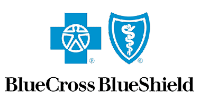How Assistance Works
Streamlining our patient’s specialty pharmacy experience with unmatched full-service convenience
-
1. Check Your Coverage/Benefits Verification
Our team of expert billers finds the best avenues of coverage that minimize out-of-pocket costs.
-
2. Transfer Prescription to AmeriPharma®
We process your prescription by working with your previous pharmacy or prescriber, making the transition quick and easy.
-
3. Prior Authorization
Our team of specialists obtains approval from your insurance companies within 24 to 72 hours.
-
4. Copay Assistance & Financial Aid
We secure financial aid and decrease copays, out-of-pocket expenses, and high deductibles. To date, AmeriPharma® Specialty Care has secured $55 million in financial assistance for our patients.
-
5. Nursing Care Coordination
AmeriPharma® puts your schedule and home environment first when scheduling and coordinating one of our specialized nurses for your in-home infusions.
-
6. Delivery Coordination
Medications are always delivered in strict compliance with the specific requirements for shipping. Next-day and overnight cold-chain deliveries are coordinated around your schedule.

What Is Privigen?
Privigen is a 10% liquid human IgG derived from human plasma. It is supplied in a single, ready-to-use, sterile 10% vial. It is stable at room temperature for the period of its expected lifespan (up to 36 months). Privigen medication has a distribution of IgG subclasses that is similar to normal serum.
Approximately 99.2% of the composition comprises IgG. The remaining .8% is composed of monomers and dimers. IgA is present at undetectable levels (1.8 mg/ml) in samples of Privigen IVIG.
Privigen is stabilized at a pH of 4.8 by amphiphilic amino acid L-proline (250 mmol/l), which is present in high concentrations in the solution.
This formulation is intended to reduce denaturation, degradation, and aggregation of IgG to the greatest extent possible.
L-proline prevents the formation of excessive amounts of idiotype/anti-idiotype dimers during storage. This prevents the development of inflammatory reactions following intravenous administration of the compound. It is well established that decreasing Privigen IgG dimer formation leads to an improvement in clinical tolerability.
Strict controls are in place to reduce the potential for pathogen transmission through this therapeutic product. This includes donation control and plasma pool screening.

What Is Privigen Used To Treat?
Privigen medication works by boosting the immune system, and this reduces the risk of infection for people with a weakened immune system.
It is used to treat a variety of conditions.
Chronic Inflammatory Demyelinating Polyneuropathy (CIDP)
Privigen helps alleviate disability and improves the neuromuscular function of CIDP patients.
Chronic Immune Thrombocytopenic Purpura (ITP)
Privigen increases platelet counts in patients with ITP who are 15 years or older.
Primary Humoral Immunodeficiency (PI)
Privigen is an FDA-approved PI replacement therapy. Examples of primary humoral immune deficiencies are:
- Wiskott-Aldrich syndrome
- Common variable immunodeficiency (CVID)
- X-linked agammaglobulinemia
- Severe combined immunodeficiencies (SCID)
- Congenital agammaglobulinemia
Copay and Financial Assistance
AmeriPharma™ Specialty Pharmacy alleviates financial burdens for patients and their families
-
Advanced software locates funding sources to match you with top-dollar foundation programs
-
One of our copay assistance specialists will assist with the application process
-
Automatic updates will be sent to you and your physician on the status of the funding

Privigen Dosing
Dosing for CIDP (Chronic Inflammatory Demyelinating Polyneuropathy)
A loading dose of 20 ml/kg (2 g/kg) over 2 to 5 days is recommended. Based on the patient’s weight, Privigen maintenance infusions can be given as a single dose or two doses every three weeks.
No research has been done on maintenance therapy after six months.
The manufacturer recommends an initial infusion rate of 0.005 ml/kg/min (0.5 mg/kg/min). In some cases, the Privigen infusion rate can be increased to 0.08 ml/kg/min (8 mg/kg) if tolerated.
Privigen should be given at the lowest possible rate to patients at risk of volume overload, thrombosis, or renal dysfunction.
Dosing for Chronic Immune Thrombocytopenic Purpura (ITP)
Chronic ITP patients should receive a Privigen dose of 10 ml/kg (1 g/kg) over two days for a total of 2 g/kg.
Privigen IVIG is also prescribed for the treatment of acute ITP. In patients who are at risk of volume overload, acute kidney injury, hemolysis, or thrombosis, it is important to weigh the risks vs. benefits of treatment carefully.
Dosing for Primary Humoral Immunodeficiency (PI)
Patients with PI may require different levels of immunoglobulin therapy because the half-life of Privigen IgG varies significantly from one patient to the next.
With the help of clinical response monitoring, it is possible to determine the appropriate dose.
Privigen is prescribed for patients with a dose of 2 to 8 ml/kg (200 to 800 mg/kg) every 3 to 4 weeks.
If the patient misses a dose, give them the missed dose, then resume the next infusion every 3 or 4 weeks from the missed dose.
To achieve desired serum IgG levels and clinical responses, dosage should be tailored to each individual.
Privigen Side Effects
Common side effects of Privigen include:
- Headache
- Nausea
- Flushing (tingly feeling, redness, or warmth)
- Fever
- Minor chest pain
- Tired feeling
- Dizziness
- Low levels of iron in the blood (anemia)
- Chills
- Fatigue
- Vomiting
- Back or joint pain
- Muscle cramps
More serious infusion side effects include:
- Hypersensitivity
- Transmissible infectious agents
- Interference with laboratory tests
- Volume overload
- Hypertension
- Hemolysis
- Thrombosis
- Aseptic meningitis syndrome (AMS)
- Increased serum viscosity, hyponatremia, and hyperproteinemia
- Transfusion-related acute lung injury (TRALI)
- Acute renal failure and renal dysfunction
Insurances Accepted
We accept Medicare, multi-state Medicaid, Medi-Cal, Blue Shield, and most private insurances. Call us to find out more about your coverage.
Get Started in Minutes
Fill out your information and one of our specialists will call you ASAP.
How Much Can You Save?
Complete this form to save up to 100%!
By submitting, you agree to AmeriPharma’s Terms of Use, Privacy Policy, and Notice of Privacy Practices









